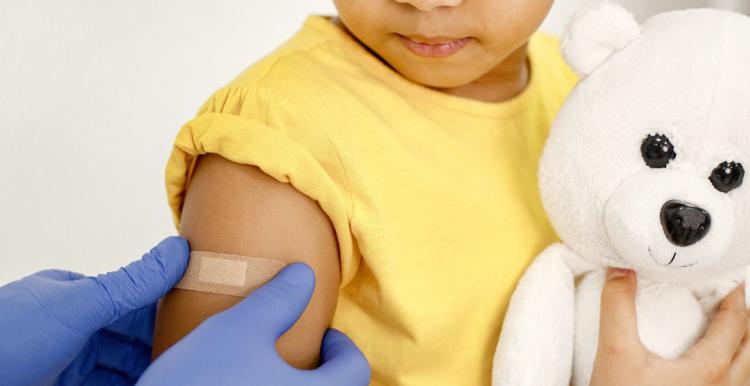What is measles and who can get the vaccine?

What is measles?
Measles is a very infectious disease - just a cough or sneeze can spread the virus to other people. It spreads easily and quickly among those who are not vaccinated, especially in nurseries and schools.
Measles can be very dangerous. One in five people with measles will go to hospital and in very rare cases people can die from the disease. People in certain at-risk groups including babies and young children, pregnant women, and people with weakened immunity, are at increased risk of complications from measles.
If you think you or your child may have measles, stay at home and phone your GP or NHS 111 for advice. Stay away from GP surgeries, A&E departments and other health care venues. People with measles should stay off nursery, school, or work for at least 4 days from when the rash first appears.
To learn about the symptoms of measles, check out the NHS website.
Signs and symptoms
Measles usually starts with cold-like symptoms, followed by a rash a few days later. Some people may also get small spots in their mouth.
The first symptoms of measles include a high temperature, a runny or blocked nose, sneezing, a cough and red, sore, watery eyes. Small white spots may appear inside the cheeks and on the back of the lips a few days later. These spots usually last a few days. A rash usually appears a few days after the cold-like symptoms.
What is the measles vaccine?
The NHS advises that children receive two vaccine doses to protect them against measles, mumps and rubella.
The measles vaccine is also known as MMR vaccine - protecting you against all three of measles, mumps and rubella in one dose.
The vaccine is given in two doses: the first dose when the child is one year old and the second when they are three years and four months old. Both doses are needed for the best protection.
The NHS advises that the MMR vaccine is safe, effective and the best protection for your child. Although there have been historic concerns that the MMR vaccine is linked to autism, there is no evidence of this. Several studies have been conducted and found no link between the MMR vaccine and autism.
Need to arrange a vaccine?
If you need to get your child's MMR vaccine or check if your child is fully protected, contact your local GP practice.
Who is at risk?
People most at risk are:
- Babies
- Young children
- Pregnant women
- People with a weakened immune system.
These groups are most at risk of the virus spreading to other parts of the body and causing rare complications such as hearing loss, meningitis or pneumonia.
How does measles spread?
Measles spreads when you have close contact with other people. For example, it tends to spread quickly in schools and nurseries.
The virus can be spread by:
- Coughing or sneezing
- Direct skin-to-skin contact
- Sharing cutlery, cups, towels, clothes or bedding.
How to prevent measles from spreading
To reduce the risk of spreading the infection, always be careful to:
- Regularly wash your hands with soap and water.
- Cover your mouth and nose when you cough or sneeze.
- Dispose of any used tissues immediately.
If you think you or your child might have measles, contact your GP practice and speak to your doctor immediately. They will advise you on treatment options and how long you will be contagious.

